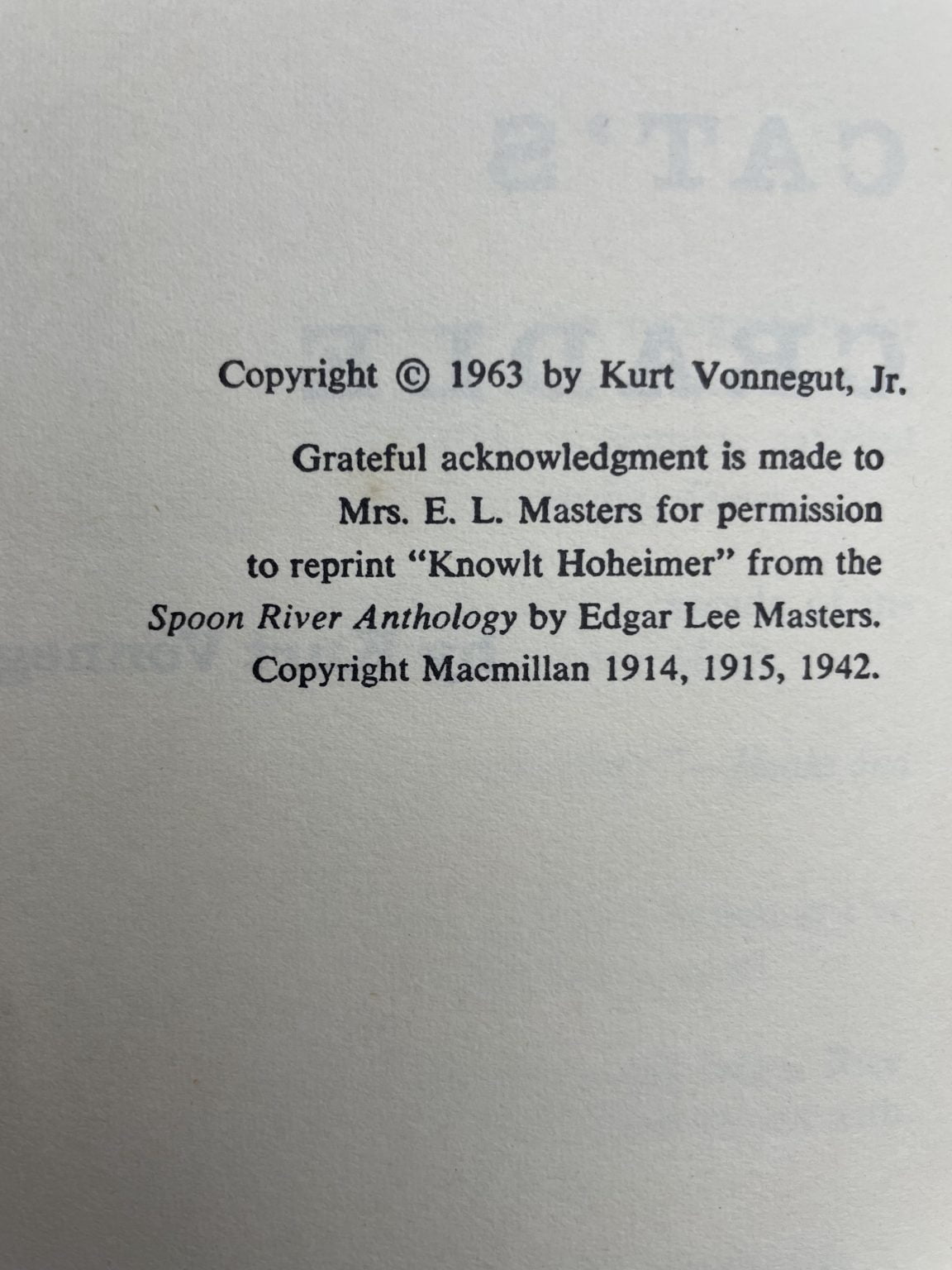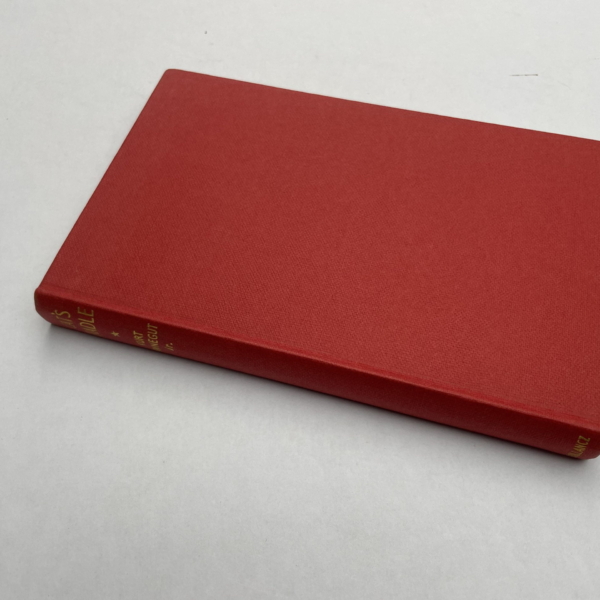Kurt Vonnegut Jnr. – Cat’s Cradle – First Edition 1963
£750.00
A first edition, first printing published by Gollancz in 1963. A near fine book with one small name to the head of the front endpaper. In a very good unclipped wrapper with a neat closed tear to the corner of the front panel. Some light chips to the edges of the spine and to the corners, but none of the usual heavy browning to the spine. Slightly offset to the top of the rear panel of the dust wrapper.
Vonnegut’s “Cat’s Cradle” is a satirical and thought-provoking novel that reflects on the absurdity of human existence, the dangers of scientific progress, and the potential for catastrophic consequences in the modern world. The novel’s central concept of “ice-nine,” a fictional substance with the power to freeze all water, serves as a metaphor for the destructive potential of unchecked scientific innovation and human folly. Vonnegut’s biting critique of militarism, religion, and the human capacity for self-destruction resonates with readers, prompting contemplation of the implications of scientific advancement and the existential dilemmas of contemporary society.
(We don't keep all of our stock in the shop, so send us an email if you're planning a trip to see a particular author or book.)
- Description
Description
A first edition, first printing published by Gollancz in 1963. A near fine book with one small name to the head of the front endpaper. In a very good unclipped wrapper with a neat closed tear to the corner of the front panel. Some light chips to the edges of the spine and to the corners, but none of the usual heavy browning to the spine. Slightly offset to the top of the rear panel of the dust wrapper.
Vonnegut’s “Cat’s Cradle” is a satirical and thought-provoking novel that reflects on the absurdity of human existence, the dangers of scientific progress, and the potential for catastrophic consequences in the modern world. The novel’s central concept of “ice-nine,” a fictional substance with the power to freeze all water, serves as a metaphor for the destructive potential of unchecked scientific innovation and human folly. Vonnegut’s biting critique of militarism, religion, and the human capacity for self-destruction resonates with readers, prompting contemplation of the implications of scientific advancement and the existential dilemmas of contemporary society.










